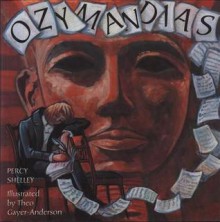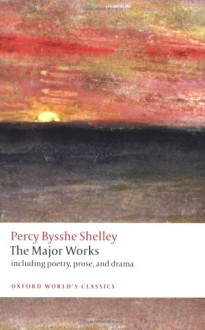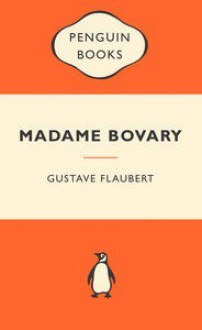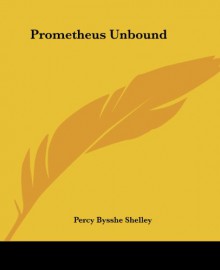
This was Shelley's first long poem and it was written initially to his first wife (the Queen Mab of the title) when he was 19. All I can say is that if this was his first poem then Shelley's ability is impressive. However, the nature and contents of this poem did actually get him into quite a lot of trouble, no doubt due to the attacks against the king and also the significant atheistic overtones, and it is not that the atheistic nature of the poem is subtle: it is quite blatant, though it is not as if Shelley was necessarily walking new ground, particularly since Blake and others were writing along these lines prior to him.
Mab of the title possibly comes from the reference to her in Shakespeare (which, according to Wikipedia, is the first major literary mention of her). No doubt Shelley would have been familiar with the reference, and in Romeo and Juliet, she is described as a fairy who grants dreams of wish fulfilment to those who are asleep. Maybe the nature of the title reflects Shelley's desire to see a better world where the lower classes do not live under the heel of the ruling class. Unfortunately this has not necessarily come about, even though since Shelley's time social welfare has moved significantly from where it was then and the poorer classes, at least in the Western World, live much more luxurious lives than they did back then. However, there is still a massive distinction between the haves and have-nots, and still an underlying goal in regards to the pursuit of wealth.
One of the interesting things that I have picked up while reading this poem is how political and social criticism is nothing new, which is obvious, but having lived through the period of the Bush administration where political and social criticism reached a level of popularity which I had not seen before, it is interesting to reflect on this style of commentary in ages past. In a way, this period of history also saw a rise in such commentary, particularly since Europe had just been through the French Revolution and the United States had formed a republic out of a rebellion against the English throne. However, it was not the American Rebellion that had been the counter-point of this agitation against the ruling class, simply because it was a rebellion of the wealthy merchant classes against the aristocratic classes. What France has signified was a rebellion of the lower classes (though the leaders of the rebellion were still bourgeoisie) against the aristocratic classes, and the desire for a real democracy, not based upon land ownership (as was the case in the United States) but based upon the fact that everybody is a human being and in that everybody is equal.
It wasn't as if Shelley was writing anything new because writers before him, such as Rousseau, had already been exploring these issues, and even then writers as far back as Jonathon Swift, had been writing allegorical criticism (since in those days writing in the style of Noam Chomsky would have got you in a lot of trouble). It is not even as if he was a Romantic poet in the style of Wordsworth and Colleridge (though we know that there was a lot of influence from that sector) though he does use the romantic style to forward his political agenda. Even then, one questions whether Shelley had much of an impact in his day, but then in many cases such agitators generally do not live to see the effect that they have during their lifetime (Martin Luther King didn't).
Another interesting thing that I have noticed is how Shelley rails against Christianity in this poem. The idea is that the concept of God the Father is a reflection of our understanding of our father from when we were children. However, the tyrant God, as many view him to be, is a reflection of the tyranny of the day. The tyrant God, which is what Shelley is attacking (and what many agitators have attacked before and since) is a means of control over the population. In the same way it is as the idea of the divine right of kings was a method to prevent rebellion against a king because to rebel against the king is the same as rebelling against God. This is something that is still practised today, particularly if you look at parts of Romans which indicate that rulers are raised and deposed at God's whim, and to attempt to remove a ruler yourself is to go against God.
However, I do not believe that such passages indicate that God is a tyrant God, but rather a God of order. Nor do I believe that the passage is saying that we have to accept the ruling of any authority without questioning or challenging it. What I believe that it is talking about is armed rebellion, not political agitation. We do see that in the New Testament that where governments order us to behave in a way contrary to the Gospel then we are to question and challenge that order. It is not challenging the government, but seeking to replace a government through rebellion. Further, there are reasons for this warning, and these reasons necessarily come out in other places, and I have written about these dangers elsewhere as well so I will not necessarily dwell on them here.

 Log in with Facebook
Log in with Facebook 










